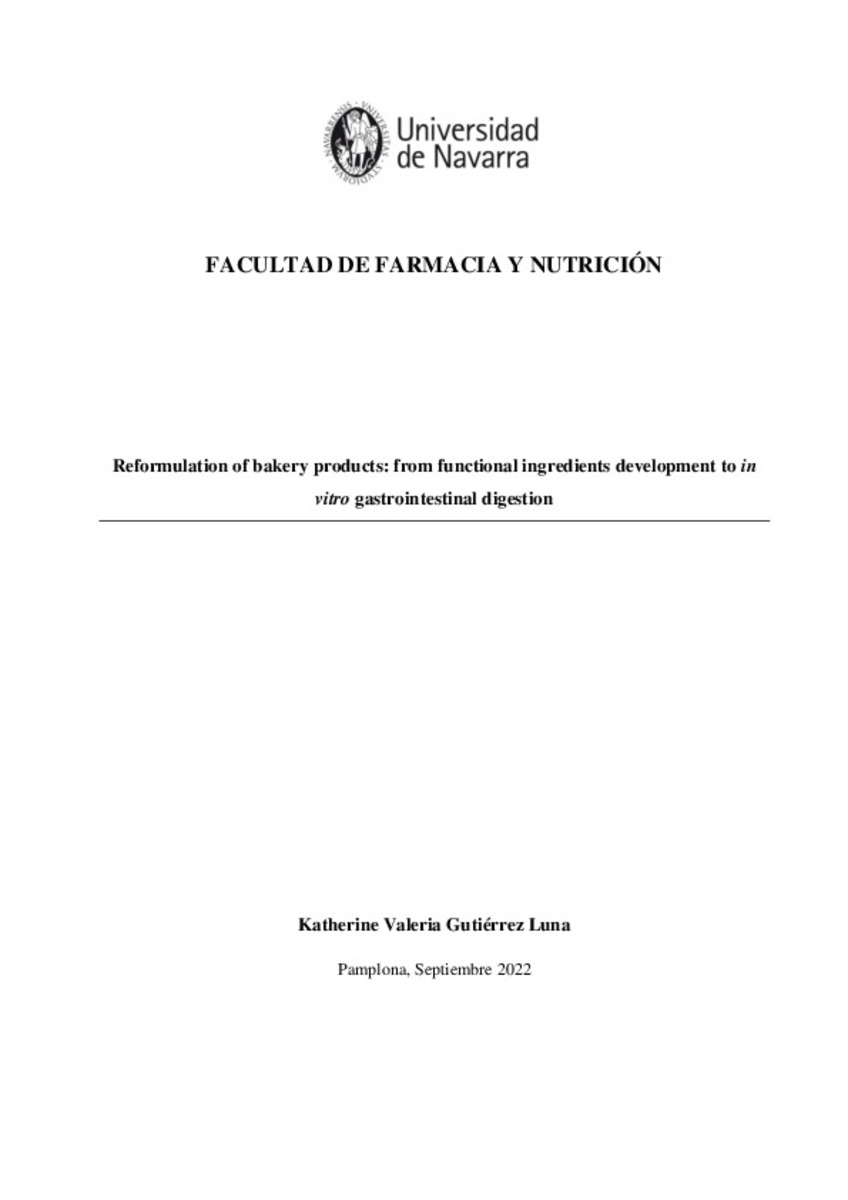Reformulation of bakery products: from functional ingredients development to in vitro gastrointestinal digestion
Keywords:
Materias Investigacion::Ciencias de la Salud::Nutrición y dietética
Bakery products
Fat content
Functional ingredients
In vitro gastrointestinal digestion
Defense Date:
28-Oct-2022
Publisher:
Universidad de Navarra
Citation:
GUTIÉRREZ, Katherine. "Reformulation of bakery products: from functional ingredients development to in vitro gastrointestinal digestion". Astiasarán, I. y Ansorena, D. (dirs.). Tesis doctoral. Universidad de Navarra, Pamplona, 2022
Statistics and impact
0 citas en

0 citas en

Items in Dadun are protected by copyright, with all rights reserved, unless otherwise indicated.











